On December 12, the Signing Ceremony of the Sponsorship Agreement for the Nitto Title Lecture of the Japan Research Center of Shanghai Jiaotong University and the first lecture of the Nitto Special Lecture were successfully held in the Oriental Hall of Liao Kaiyuan Law Building, Xuhui Campus, Jiaotong University. The event was hosted by the Japan Research Center of Shanghai Jiaotong University and sponsored by Nitto Electric (China) Investment Co., Ltd. Shimada Qingxiong, President of Capital University of Japan, Zhou Cheng, Deputy Secretary of the Party Committee of Shanghai Jiaotong University, Cheng Shengyi, Chairman of Nitto Electric (China) Investment Co., Ltd., Executive Member of Nitto Electric Corporation, and General Representative of Nitto East Asia, Ji Weidong, Director of Japan Research Center of Shanghai Jiaotong University and Chair Professor of Kaiyuan Law School, Shen Guoming, former Secretary and Vice Chairman of the Party Leadership Group of Shanghai Federation of Social Sciences, and Chair Professor of Kaiyuan Law School of Shanghai Jiaotong University, Chen Zilei, Director of the Japanese Economic Research Center of Shanghai University of International Business and Economics, Zhu Baohua, Professor of Antai School of Economics and Management of Shanghai Jiaotong University, Hu Jiaxiang, Professor of Kaiyuan School of Law, Wang Yu, Professor of the School of International and Public Affairs, Cai Yuping, Deputy Secretary of the Party Branch of the International Cooperation and Exchange Office and Deputy Director of the Japanese Research Center, and Wen Quan, Economic Officer of the Japanese Consulate General in Shanghai, Kokuri Daoming, the director of the Shanghai Office of the Japan Trade Promotion Agency, Ye Weiying, the specially invited consultant of Nitto Electric (China) Investment Co., Ltd., Sato Longjiu, the director of the Business Strategy Integration Department, Xu Dimin, the secretary general of the International Exchange Foundation of the Chinese Council for the Promotion of Culture, Yao Shengxun, the director of the Japan Institute of Guizhou University, attended the signing ceremony and lectures, as well as the branch of the European American Homecoming Association in Japan, the Japan Research Center of Shanghai Normal University More than 250 teachers, students and people from the industry participated in the activity, including the Japanese Business Department of Ongli Education.
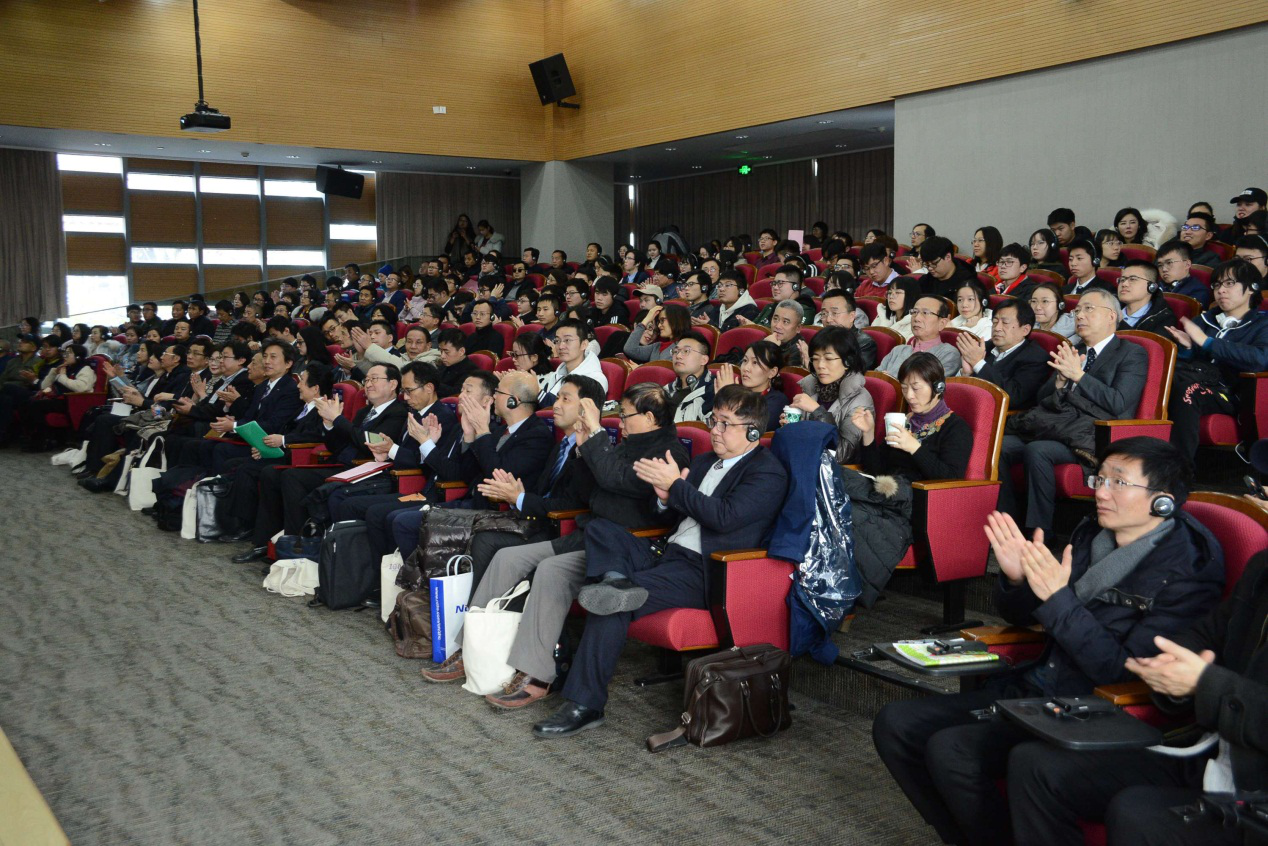
First of all, the Japan Research Center of Shanghai Jiao Tong University and Nitto Electric (China) Investment Co., Ltd. held a signing ceremony for the title lecture, and the Chairman of Cheng Shengyi, Director Ji Weidong and Consul Wenquan Chuanyao delivered speeches respectively. The signing ceremony was presided over by Deputy Secretary Zhou Cheng.

Zhou Cheng, Deputy Secretary of the Party Committee of Shanghai Jiaotong University, presided over the signing ceremony
On behalf of Nitto Electric (China) Investment Co., Ltd., Cheng Shengyi expressed his sincere thanks to the Japanese Research Center of Shanghai Jiao Tong University for holding the Nitto naming seminar, and warmly welcomed the guests who came to the seminar. He introduced Nitto's historical background and development status. He mentioned that on the 100th anniversary of Nitto's entrepreneurship, Nitto and the Japan Research Center of Shanghai Jiao Tong University jointly held a naming seminar to promote further cooperation and exchanges in culture, academia, industry and sociology between China and Japan, and contribute to enhancing the friendship between China and Japan and promoting the development of world industries.

Great Wall Shengyi, Director of Nitto Electric (China) Investment Co., Ltd., delivers a speech
Ji Weidong delivered a speech on behalf of the Japan Research Center of Shanghai Jiaotong University. He expressed his sincere thanks to the guests of this event, and introduced the establishment and development process of the Japanese Research Center as a whole. Through the establishment of an interdisciplinary platform, he was committed to training Japanese research talents and promoting exchanges and cooperation between China and Japan by highlighting the main features of law, internationalization, interdisciplinary comprehensive research and high-end talent training. He also gave a brief introduction to the theme and guests of this special lecture, and expressed the beautiful vision of promoting academic exchanges between China and Japan through the Nitto special lecture.
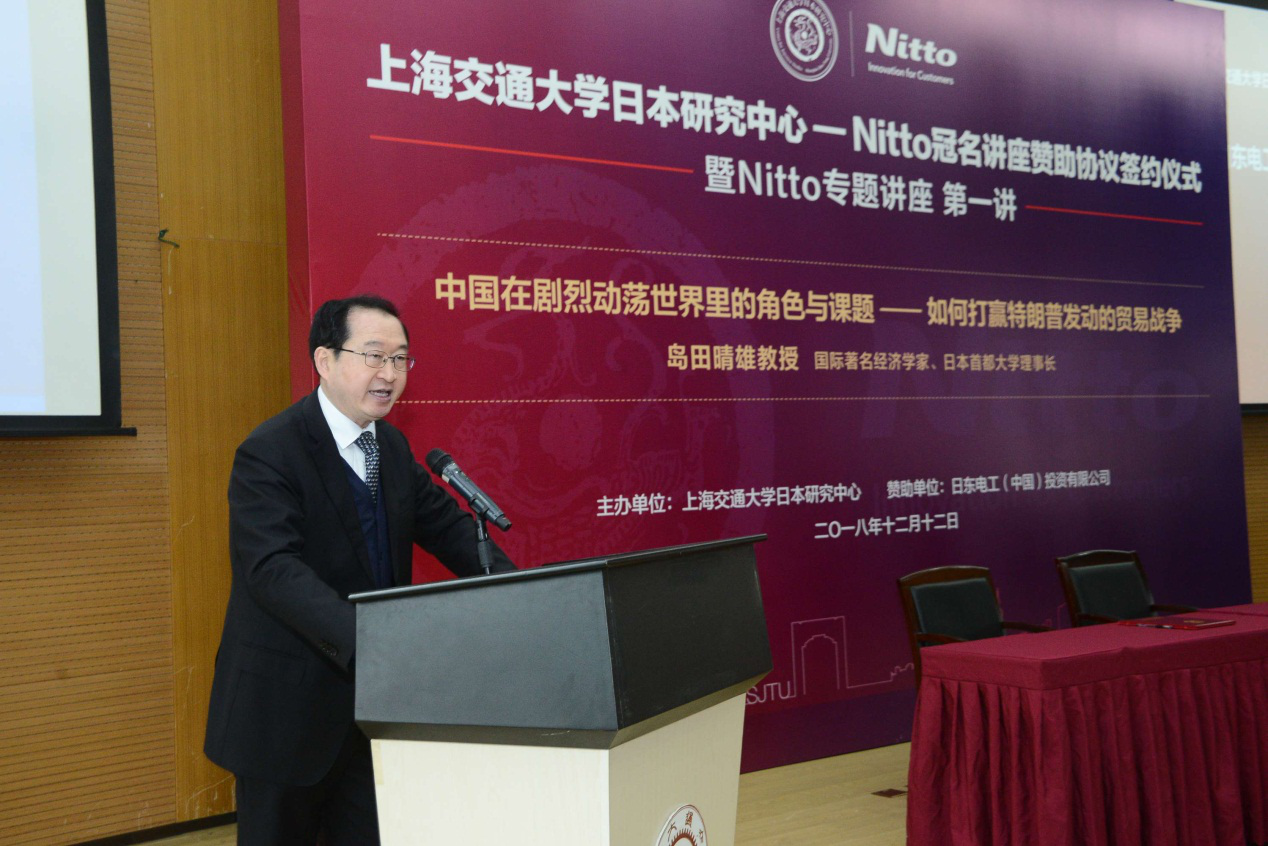
Ji Weidong, Director of Japan Research Center of Shanghai Jiaotong University, delivered a speech
Onagawa would like to first wish the Nitto Special Lecture of the Japan Research Center a success. Starting from the mutual visits between the Prime Ministers of China and Japan, he pointed out that China Japan relations are gradually harmonious and the economic cooperation between the two countries is gradually closer. At the same time, starting from his own work experience, on behalf of Japanese enterprises in China, he raised the hope that China's investment policies and business environment can be more stable. At the same time, he also expressed his expectation for this special lecture.

The Economic Consul of the Japanese Consulate General in Shanghai delivered a speech
After the speech, Cheng Shengyi and Ji Weidong signed the sponsorship agreement for the title lecture on behalf of both parties. Since its establishment, the Japan Research Center of Shanghai Jiao Tong University has been charged with the mission of promoting academic and cultural exchanges between the two countries. After signing a contract with such excellent enterprises as Nitto Electric, the Center will further promote research results, train more professionals, and become an important platform for cultural exchanges between China and Japan.

Signing ceremony
After the signing ceremony, the first lecture of Nitto's special lecture began. Professor Shimada, an internationally renowned economist, a cabinet adviser to the Prime Minister's Office of Japan, an honorary professor of Keio University of Japan, and the president of Capital University of Japan, served as the keynote speaker. The theme of the speech was "China's role and topic in a highly volatile world - how to deal with the trade war launched by Trump". The lecture was hosted by Professor Ji Weidong.
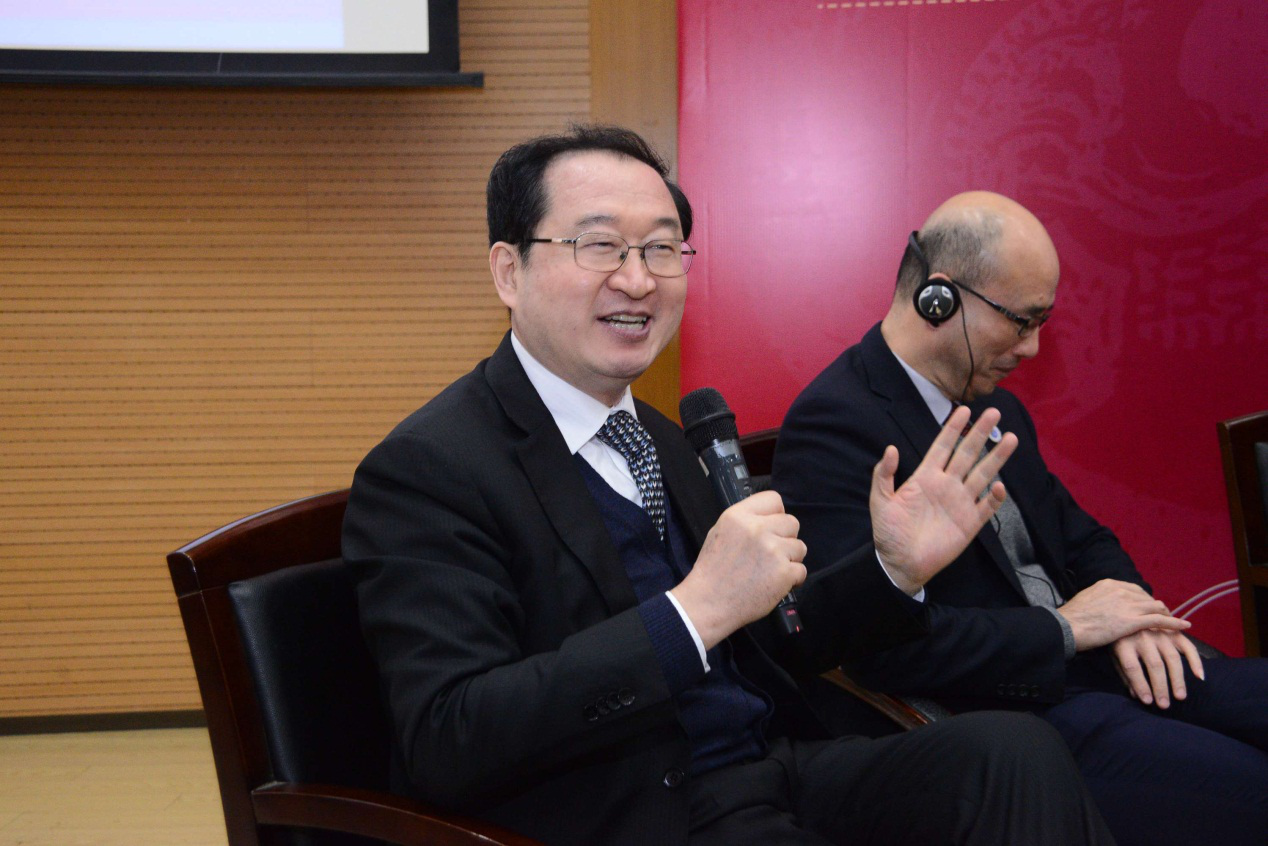
Chaired by Professor Ji Weidong
Starting from the current situation of the Sino US trade war, Professor Shimada introduced the reasons why Trump launched the trade war, combed the process of the US tariff sanctions against China in 2018 and China's counterattack measures. On the basis of reviewing China's historical development and great strategy, and introducing the Thucydides trap, he believed that the confrontation between China and the US was mainly due to the rapid development of China's economy, which posed a threat to US hegemony. He pointed out that there is a certain deviation between China's self-awareness as a major country and the world's evaluation. On the one hand, from the perspective of self positioning, China is facing many problems, such as the polarization between rich and poor, the large gap between coastal and inland areas, and the problems of new industrialized countries; On the other hand, as a recognized superpower in the world, China has made great efforts to enhance its voice in international organizations and put forward Asian, Eurasian and African strategies such as the the Belt and Road and the Asian Investment Bank. As for which side will gain the support of the world in the Sino US trade game, Professor Shimada believes that the Sino US trade war is not only a contest between China and the United States, but also a battle related to countries around the world. Therefore, China needs to have the strength to convince the world. Finally, by comparing the values of Europe and the United States with those of modern China, Professor Shimada discussed the possibility that China could create the world with universally applicable leading principles, and proposed to build a new universal theory based on the historical accumulation and wisdom of Chinese classical thought, through learning and improving the tradition.

Professor Shimada's speech
At the end of Professor Shimada's speech, Director Ji Weidong spoke highly of the content of Professor Shimada's lecture and presented a letter of thanks to him on behalf of the Japan Research Center.

Director Ji Weidong presented a letter of thanks to Professor Shimada
The round table discussion was held under the theme of "Multilateralism and the Prospects of Economic Development in East Asia". Professor Shen Guoming, Professor Chen Zilei, Professor Hu Jiaxiang, Professor Zhu Baohua and Professor Wang Yu participated in the round table discussion.
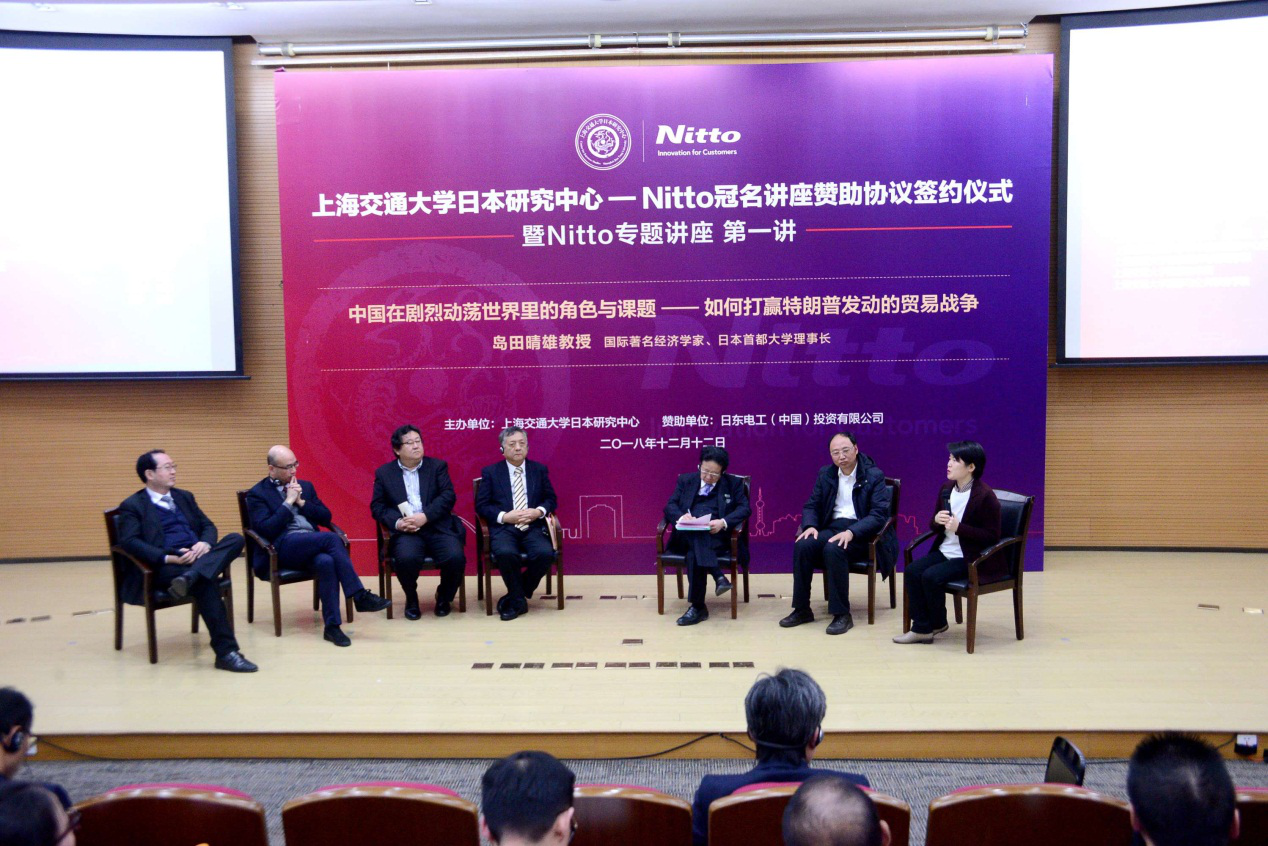
Panel Discussion
Professor Shen Guoming pointed out that, from the perspective of specific economic strength, there is still a considerable gap between China's development and that of developed countries. The proposal of Made in China 2025 is intended to promote the development of China's manufacturing industry, but such a plan is easy to be misinterpreted as a challenge to hegemony. He believed that China should further expand its openness and develop a market economy. He very much agreed with Professor Shimada's statement that China proposed a universal statement to explain the current situation of China's development in the world, so as not to mislead the world. Chinese scholars have a long way to go.
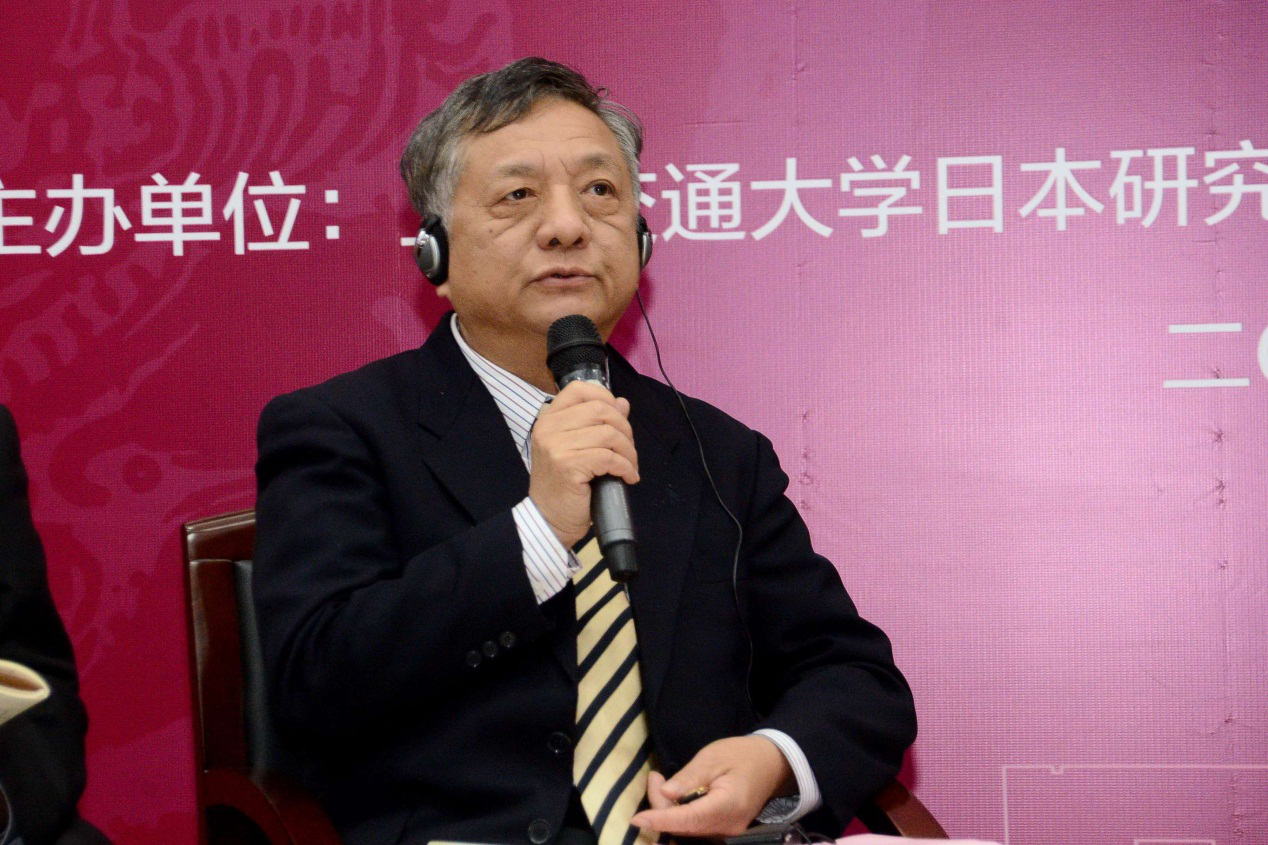
Professor Shen Guoming gives a speech
Professor Chen Zilei expressed admiration for Professor Shimada's interdisciplinary vision. He briefly combed the development history of the game of great powers in international trade, and pointed out that the market opening between China and the United States should be equal. China should increase the publicity of international trade, and prove to the world that China is gradually opening up around aspects such as intellectual property rights, market access, and free trade zone experiments. At the same time, he fully affirmed the close relationship between China and Japan's trade, and proposed that we should learn from Japan's experience and practices in dealing with trade frictions.

Professor Chen Zilei gives a speech
Professor Hu Jiaxiang analyzed from the perspective of international trade history and pointed out that Sino US trade frictions were not accidental, but historical inevitability. He said that China US trade frictions should be viewed objectively from three levels: first, trade data. Although China has a trade surplus of 100-200 billion dollars with the United States every year, the data only reflect the trade in goods, so it should be considered from the perspective of the whole trade in goods and services; Second, the US economic sanctions against China aim to challenge the existing multilateral trading system; Third, the institutional differences between China and the United States have led to different interpretations of China's socialist market economy in the United States. He believed that, at the first two levels, China could resolve conflicts through dialogue and consultation, but at the third level, China could not make concessions.
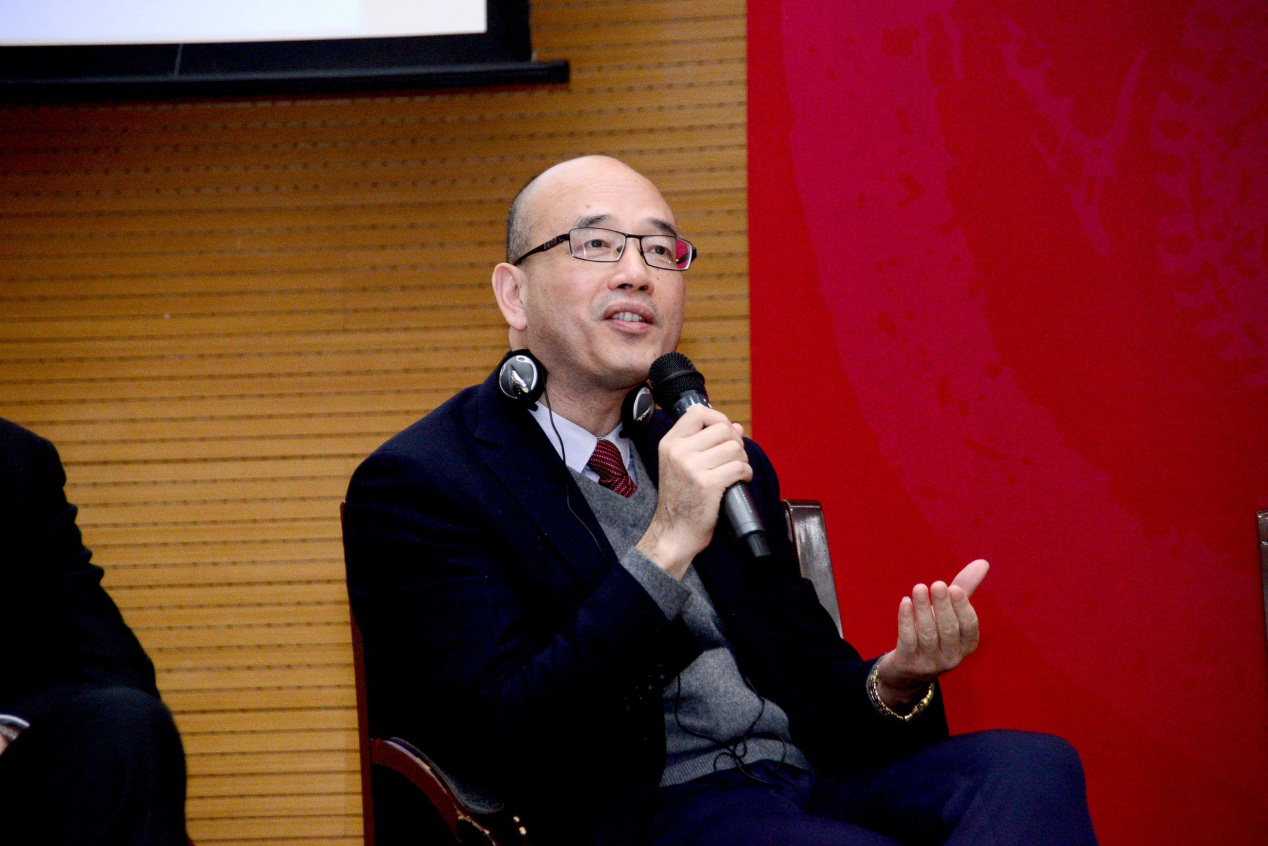
Professor Hu Jiaxiang gives a speech
Professor Zhu Baohua thanked the Japanese scholars of Professor Shimada's generation for their expectation that China's economy will lead the world's development. He pointed out that the main contradiction between China and the United States is the deviation between China's self perception and the world's perception of China. At the same time, the labor problem is also one of the causes of Sino US trade friction. As for the determination of China's status as a major country, China and the United States have different recognition standards, which need great wisdom to solve. As for whether we can find the principle of universality by learning from Chinese traditional culture, it needs further historical test.
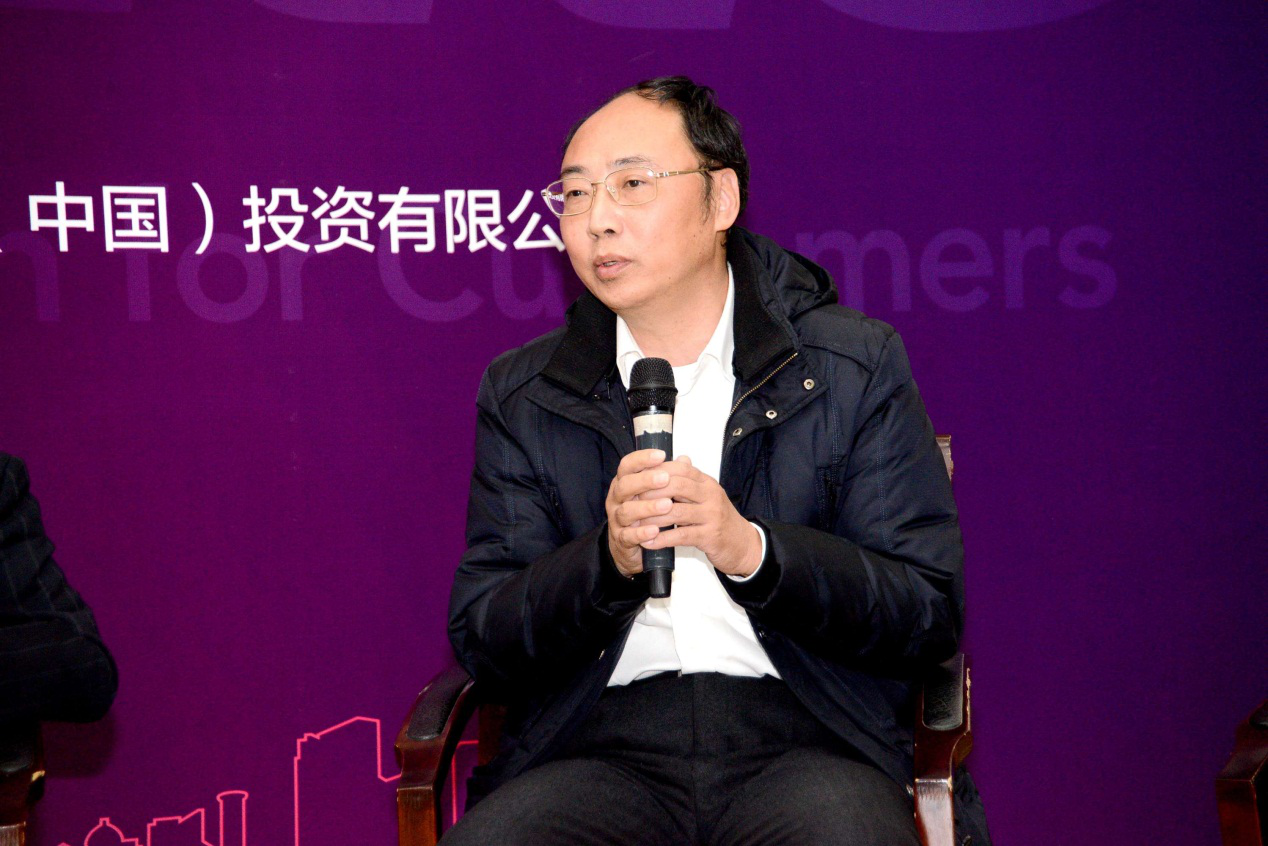
Professor Zhu Baohua gives a speech
Professor Wang Yu mentioned that Sino US trade frictions will have a very far-reaching impact on China's future development. Since the development of industrial civilization in the world, wars between countries have no longer appeared in the form of traditional wars. Taking the Spring and Autumn Period and the Warring States Period as an example, she said that after China's integration into the process of globalization, the pattern of real estate consumption credit driving social and economic development may lead to the acceleration of industrial hollowing. Therefore, China needs to reflect on its industrial economic structure and social development model.
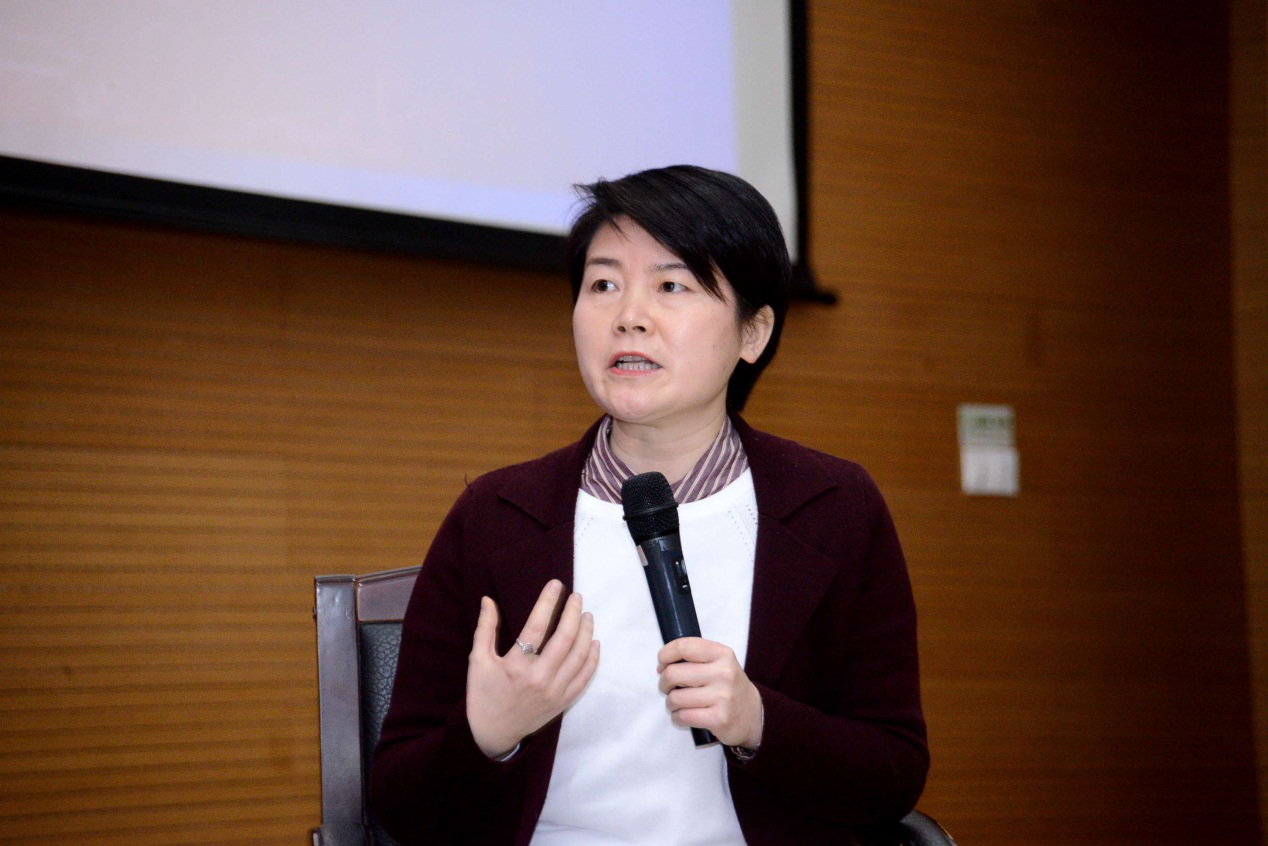
Professor Wang Yu made a speech
Professor Shimada responded to the above comments one by one and actively interacted with the audience. During the interactive session, the audience asked Professor Shimada about the impact of the Black Boat Incident on Japan's modernization, who will win the trade war, Japan's position in the Sino US trade war, and how Japanese enterprises in China should respond to the trade war. Professor Shimada gave a concise response.
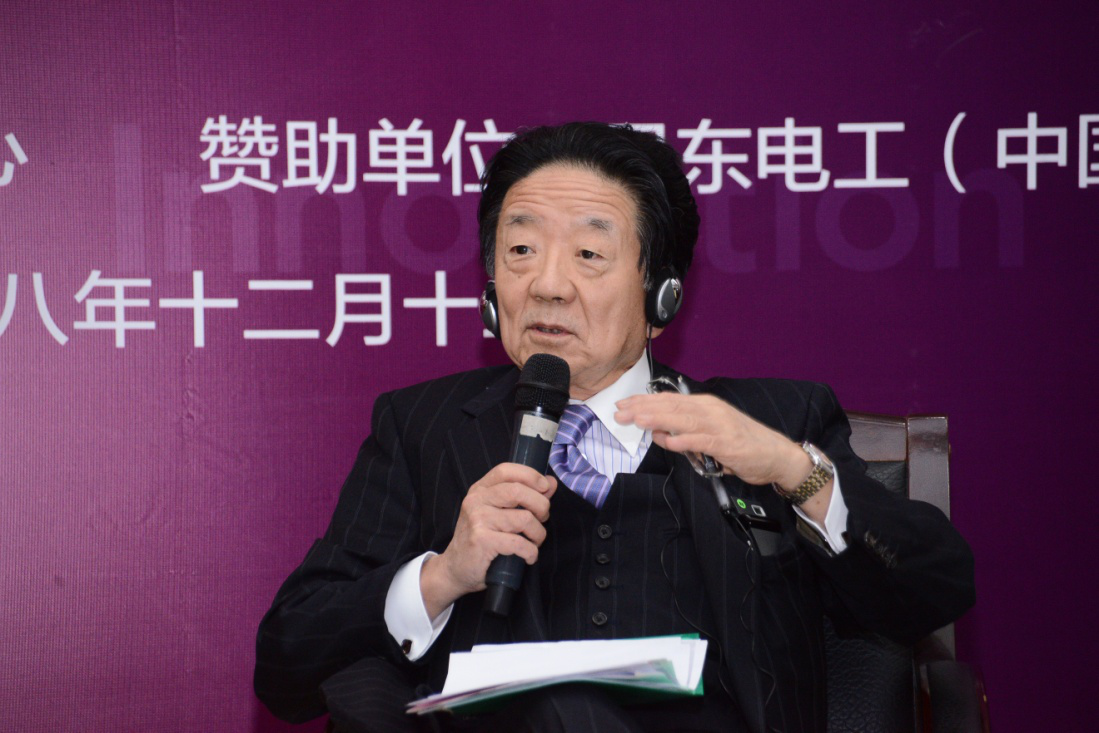
Professor Shimada responded to guest discussion and audience questions
It is reported that Professor Shimada and Chairman Cheng Shengyi, accompanied by Director Ji Weidong and Deputy Director Cai Yuping, visited the Japan Research Center of Shanghai Jiaotong University before the lecture, and met with Zhou Cheng, Deputy Secretary of the Party Committee of Shanghai Jiaotong University in the VIP Hall of Kaiyuan Law School.

Visit the Japan Research Center of Shanghai Jiaotong University
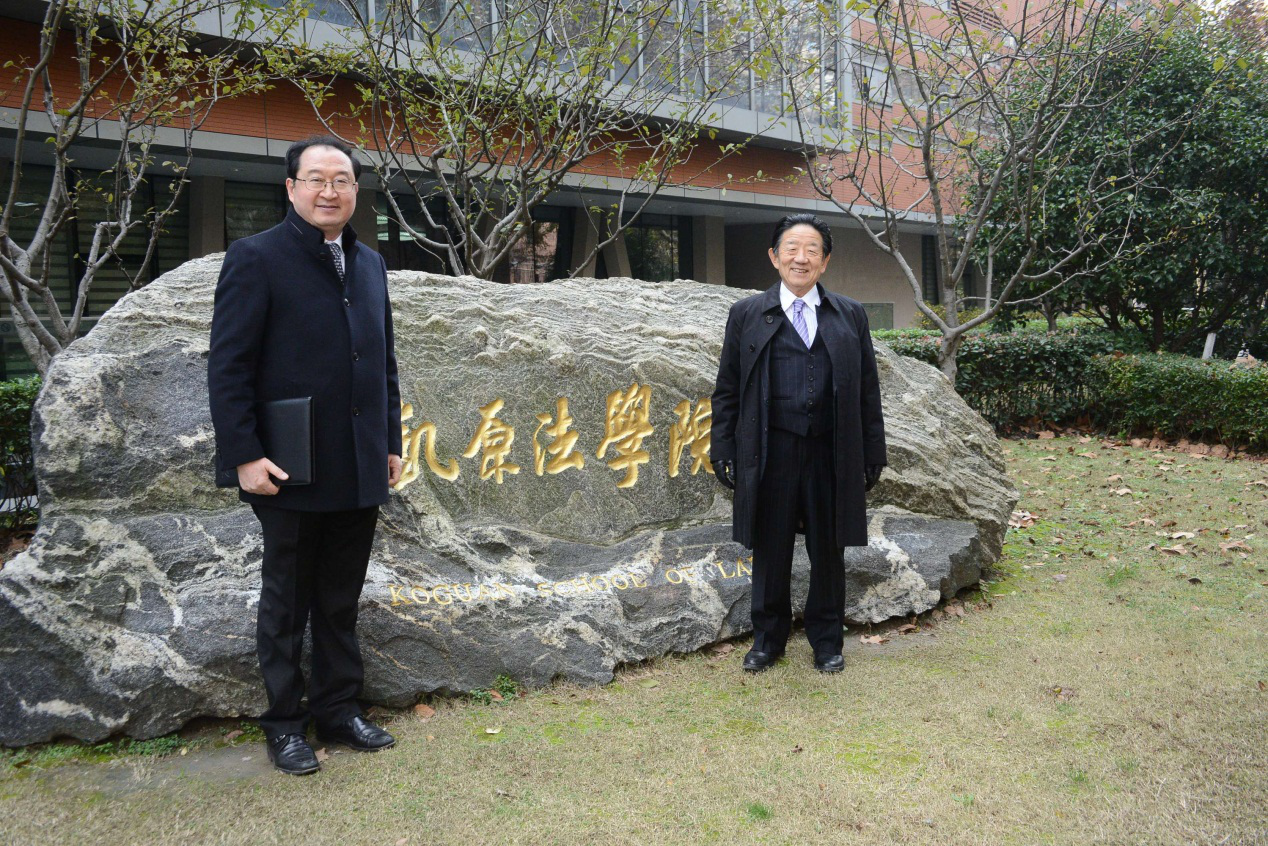
Director Ji Weidong and Professor Shimada Qingxiong took a group photo in front of Kaiyuan Law School

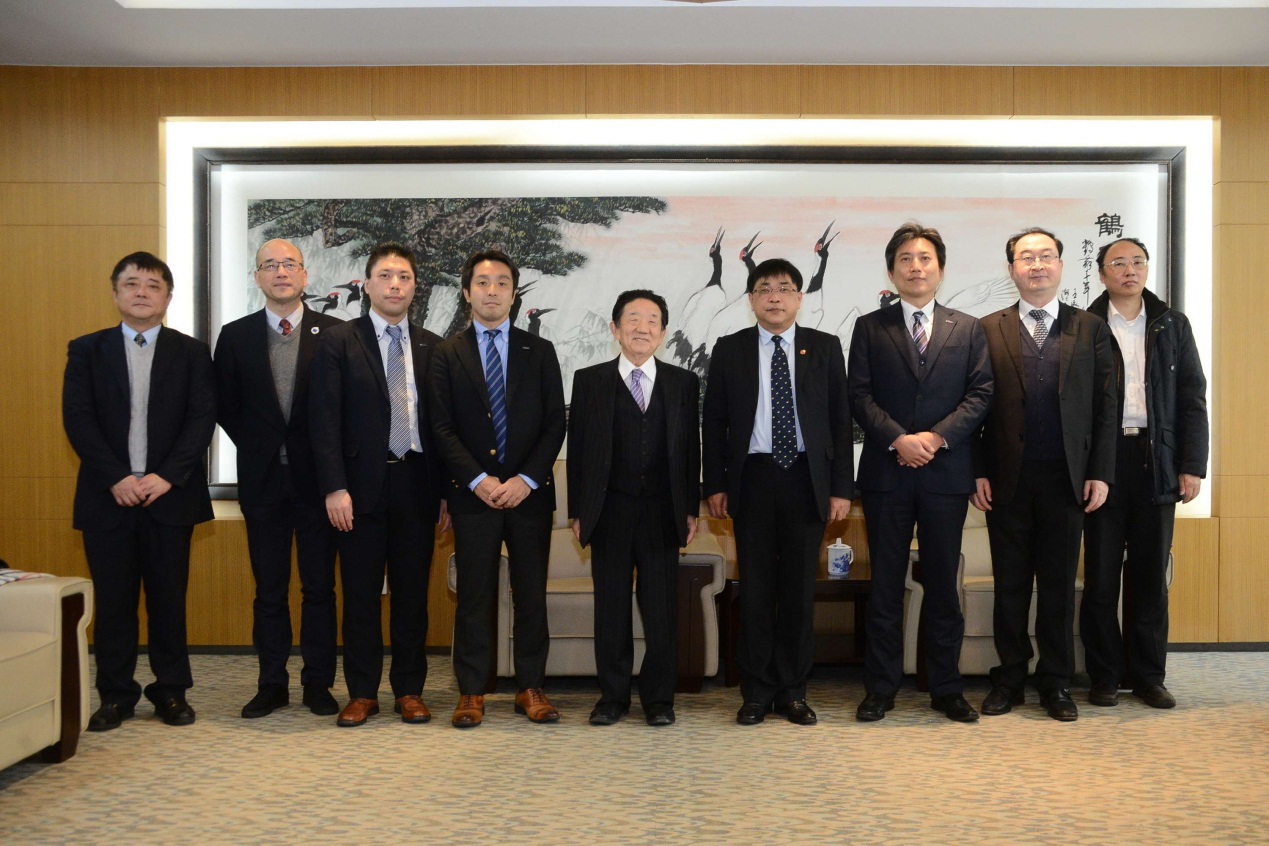
Professor Shimada met with Deputy Secretary Zhou Cheng

Professor Shimada took a group photo with guests